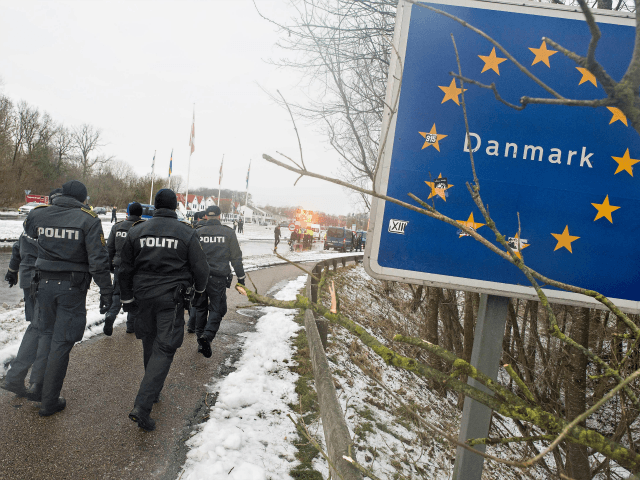Despite widespread condemnation, Denmark’s parliament is expected to vote Tuesday in favour of drastic reforms curbing asylum seekers’ rights, including delaying family reunifications and confiscating migrants’ valuables.
The country has insisted the new law is needed to stem the flow of refugees even though Denmark and Sweden recently tightened their borders, a move that prompted Germany and Austria to turn back new arrivals heading for Scandinavia.
While international outrage has focused on a proposal allowing police to seize cash and valuables from refugees to help pay for their stay in asylum centres, rights activists have blasted a proposed three-year delay for family reunifications which they say breaches international conventions.
The plan has “a particularly bitter connotation in Europe, where the Nazis confiscated large amounts of gold and other valuables from Jews and others,” The Washington Post wrote.
Prime Minister Lars Lokke Rasmussen of the right-wing Venstre party has shrugged off criticism by calling it “the most misunderstood bill in Denmark’s history”, seemingly more concerned with opinion polls that show 70 percent of Danes rank immigration as their top political concern.
“Rasmussen has to be elected in Denmark… not (by) the international media,” Bjarne Steensbeck, a political commentator at public broadcaster DR, told AFP.
– ‘Significantly less attractive’ –
The minority government eventually backtracked on parts of the plan to confiscate migrants’ valuables in order to secure parliamentary backing for the bill from two small right-wing parties and the opposition Social Democrats.
Those seeking asylum will now have to hand over cash exceeding 10,000 kroner (1,340 euros, $1,450) and any individual items valued at more than that amount, a sum raised from the initial proposed 3,000 kroner.
After thorny negotiations with the other parties, Integration Minister Inger Stojberg agreed to make wedding rings and any other items of sentimental value exempt.
An immigration hardliner, she has repeatedly stated that “Danish immigration policy is decided in Denmark, not in Brussels.”
Once a champion of refugees’ rights, the Scandinavian country’s goal is now to become “significantly less attractive for asylum-seekers.”
“The tone in the public debate about refugees and immigrants has undoubtedly become tougher,” Kashif Ahmad, the leader of the National Party, which hopes to enter parliament by targeting the immigrant vote, told AFP.
Amnesty International has said refugees would face “an impossible choice” if the waiting period for war refugees before they can apply to bring over their family was increased from one year to three.
“Either bring children and other loved ones on dangerous, even lethal journeys, or leave them behind and face a prolonged separation,” spokeswoman Gauri van Gulik said.
– International criticism –
Home to 5.6 million people, Denmark registered 21,000 asylum applications in 2015, making it one of the top EU destinations per capita for migrants but putting it far behind the 163,000 registered in neighbouring Sweden.
International criticism has mounted in the run-up to Tuesday’s vote, with refugee agency UNHCR claiming it violates the European Convention on Human Rights, the UN Convention on the Rights of the Child, and the UN Refugee Convention.
In a January 15 letter to Stojberg, the Council of Europe’s commissioner for human rights, Nils Muiznieks, said the proposal on family reunifications raises “issues of compatibility with Article 8 of the European Convention on Human Rights.”
Rasmussen, whose Venstre party won a June 2015 election after promising an “immediate slowdown” of Denmark’s refugee influx, has been unfazed, arguing that the UN Refugee Convention may need to be changed if refugees keep pouring into Europe.
Foreign Minister Kristian Jensen defended the new law last week as he appeared before the United Nations for a review of Denmark’s human rights policies.
“The Danish welfare state is based upon the very simple principle that the state will provide and pay for those unable to take care of themselves, not for those who are able,” he told the Human Rights Council.
He and Stojberg reiterated the same line as they faced questioning from European MPs in the civil liberties committee on Monday.
Once passed by parliament, the bill will be signed into law by Denmark’s Queen Margrethe within a few days.
Danish lawmakers last week also passed a resolution pushing the government to look into the consequences of building temporary housing complexes outside cities for refugees, like the country did during the Balkans war in the 1990s.
The move is backed by the anti-immigration Danish People’s Party, which sees it as a first step towards building state-run camps where refugees would stay without integrating into Danish society.




COMMENTS
Please let us know if you're having issues with commenting.